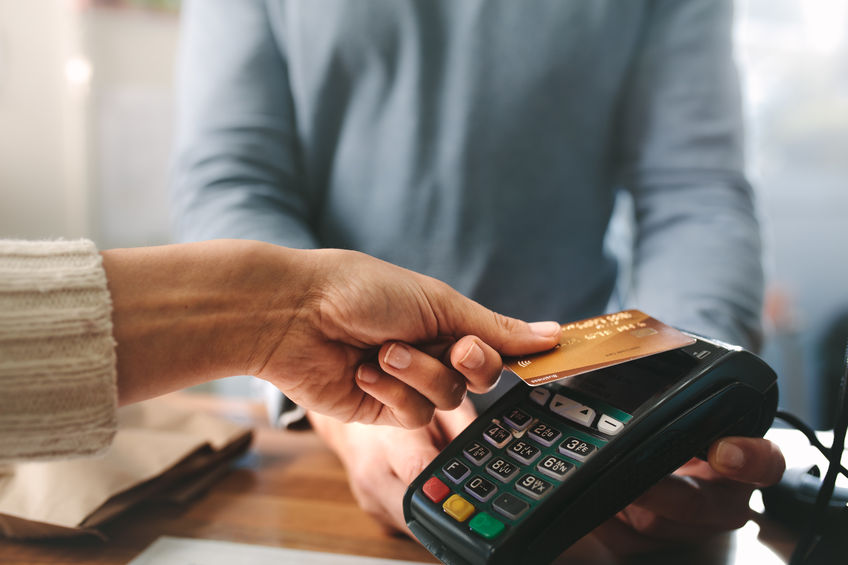 According to the 2019 Experian Consumer Credit Review, the average American carries $6,194 in credit card debt, typically distributed over four credit cards. Monitoring and making payments for different cards can quickly become stressful. As a result, many consumers are turning to personal loans to consolidate debt and reduce financial stress.
According to the 2019 Experian Consumer Credit Review, the average American carries $6,194 in credit card debt, typically distributed over four credit cards. Monitoring and making payments for different cards can quickly become stressful. As a result, many consumers are turning to personal loans to consolidate debt and reduce financial stress.
This post explores if adopting that strategy to pay off credit card debt is a good idea. Let’s get right into it.
What is a Personal Loan?
This is simply money you borrow for just about any purpose, which may include debt consolidation, student loan, and vacation, among many others. Once the loan is granted, you pay back the amount (of course, with interest) in monthly installments over a period of about two to five years.
Personal loans are typically unsecured, meaning they are not backed by collateral. As of June 2019, the average interest rate on personal loans was 9.41%.
When using a personal loan for debt consolidation, you should look into a 0% introductory APR credit card. With this card, you pay no interest on your loan for a certain period after you open your account. But after this period expires, it often shifts to a high ongoing interest rate. Provided you can pay the loan with the grace period, you won’t have to pay any interest.
When is Using Personal Loan to Pay off Credit Card Debt a Good Idea?
Obtaining a personal loan allows you to consolidate your debt. This way, you only get to worry about making one lump monthly payment instead of multiple smaller payments. This invariably increases focus and reduces financial stress.
Here are some instances when using this strategy is a good idea:
- To Lower Interest Rate
A debt consolidation loan can help to reduce the annual interest rate and that’s why it is attractive. According to the Federal Reserve data, the average 24-month personal loan interest rate was 9.50%, while the credit card interest rate was 14.52%.
The interest rate is the most important factor that determines debt growth. By taking advantage of the lower interest rate of personal loans, you can drastically cut down the amount you have to pay in interest, all other things being equal.
But before you opt for it, ensure that the interest rate is, indeed, lower.
- Consolidated Payments
A debt consolidation loan will turn multiple monthly payments into one monthly payment. This helps to streamline debt repayment as you can focus all of your time, attention, and energy on a single payment.
Here’s a big caveat. To be effective, it is important that you do not rack up new debts in your credit card after consolidating your credit card debt. This is the perfect recipe for disaster because as you try to pay off your consolidated loan, the smaller balances start accumulating at an exponential rate.
Therefore, before you opt for consolidation, it’s important to analyze your spending habits. Are you always getting in debt? Do you never stick to your budget? Addressing such issues will ensure that you clear your debt and stay out of debt.
- Defined Debt-Free Debt
With some personal loans, you may get a definitive date where you can pay off your debt with zero interest. If you’re able to pay off your debts before the due date, it can be a huge relief and give you immense financial freedom.
After the due date, the rate will rise to between 14.74 to 24.74% based on your creditworthiness. This means that if you refuse to pay off your debt on time, you may end up with an interest rate that’s higher than your current rate. So, make sure you assess your situation properly before you proceed.
- Improve Credit Score
Credit card makes up 30% of the FICO score. This means that if you’re able to pay off your credit card debt, your credit score can rise. Take note that the credit utilization ratio is used in credit score calculation. Credit utilization ratio is the amount of revolving credit you’re currently using divided by the total amount of revolving credit you have available.
Since personal loans are not taken into consideration in a consumer’s credit utilization ratio, it can help lower the utilization ratio and boost credit score.
- Lower Monthly Payment
When you use a personal loan to pay off your credit card debt, chances are your new monthly payment will be lower than the sum of your previous monthly payments. For instance, if you were originally paying $600 per month in minimum payment, you may find a personal loan that will require a $500 minimum monthly payments. You may even apply the extra $100 per month to your loan’s principal. This will help you to get out of debt faster.
Bottom line
Taking a personal loan doesn’t eliminate your debt, it simply just transfers it. However, when harnessed intelligently, it can help you lower your interest rate, lower monthly payments, and even get out of debt on time.
Contact us today for more details.

